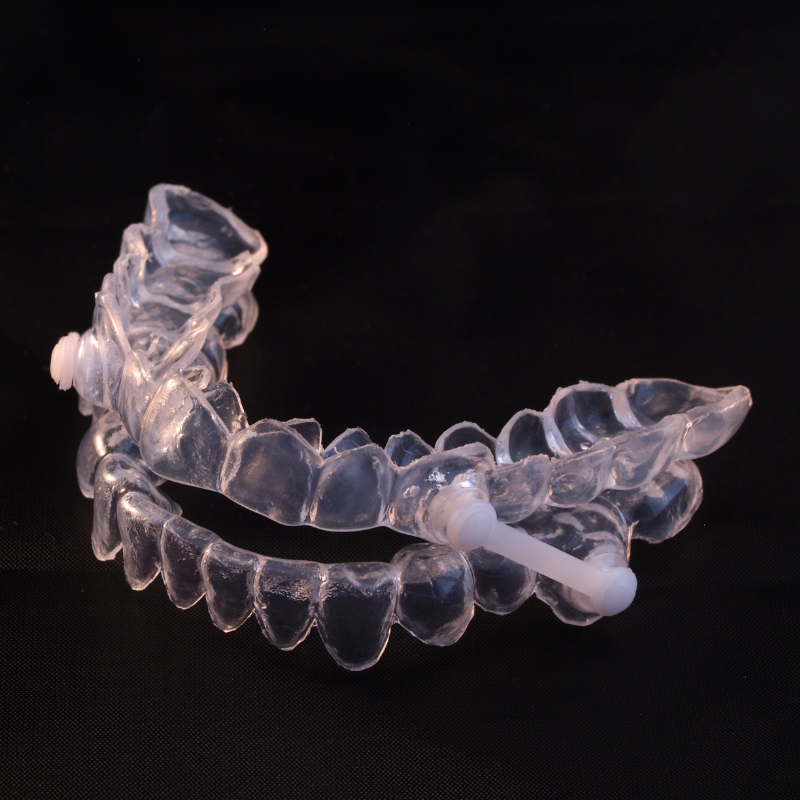
Sleep Apnea
Obstructive Sleep Apnea (OSA) occurs when soft tissues in the mouth and throat block the airway, leading to disrupted sleep and poor overall sleep health. This condition lowers oxygen saturation levels, causes unrefreshing sleep, leads to daytime fatigue, and often results in snoring. Strongly linked to numerous co-morbidities, OSA affects approximately 18 million American adults, with countless cases remaining undiagnosed.
Sleep Apnea Symptoms
Treatment Options for Sleep Apnea
- Waking up tired and unrefreshed, no matter how many hours of sleep you get, excessive daytime sleepiness or fatigue
- Insomnia. Seems strange, but your body is actually trying to keep you awake so you don’t stop breathing while asleep.
- Waking up frequently during the night to go to the bathroom.
- While asleep, gasping for breath or pauses in breathing
- Waking up gasping or choking
- Heartburn or waking up with stomach acid in your mouth.
- Frequent napping.
- Loss of interest in life, hobbies and intimacy.
- High blood pressure (adults)
- Hyperactivity/Attention Deficit Disorder (children)
- Snoring loudly
- Morning headaches
- Trouble concentrating
- Depression & Anxiety
- Sleep difficulties
CPAP MACHINE
The “gold standard” treatment offered to people with OSA is continuous positive airway pressure (CPAP) therapy, which involves having air blown into the airway to keep it open during sleep. Although CPAP therapy is highly effective, some people have trouble tolerating it. In these instances, other treatments are recommended, such as oral appliances.
ORAL DEVICE
Oral appliances are devices put in the mouth to help keep a person’s airway open as they sleep. Two oral appliances are generally used for adults with OSA, and a third is available for children with OSA. People are usually prescribed oral appliances by their sleep specialist, but sometimes they are handled by an orthodontist or dentist.
Home Remedies
- Positional sleeping (sleeping on your side)
- Avoid alcohol within 3 hours of bedtime
- Avoid caffeine after 1 in the afternoon
- Drink plenty of hydrating fluids
- Get regular exercise
- Maintain a healthy weight
- Eat a balanced diet
- Keep a consistent sleep schedule
- Keep the room you sleep in dark and cool
- Avoid electronics and screen time at least 2 hours before you go to bed
Opening Hours
Friday – Sunday: CLOSED
